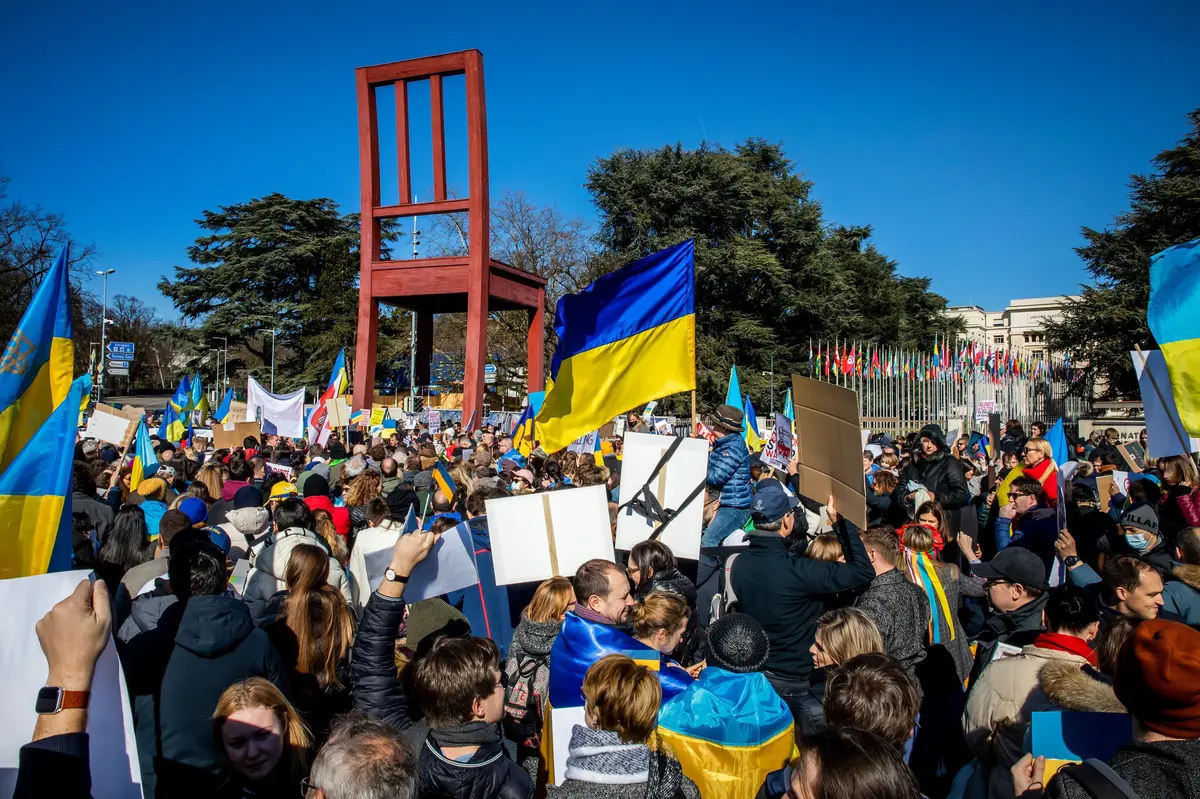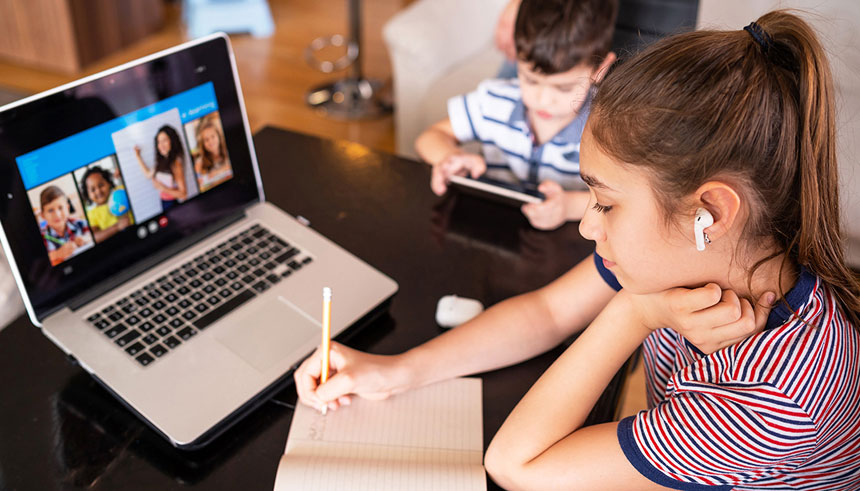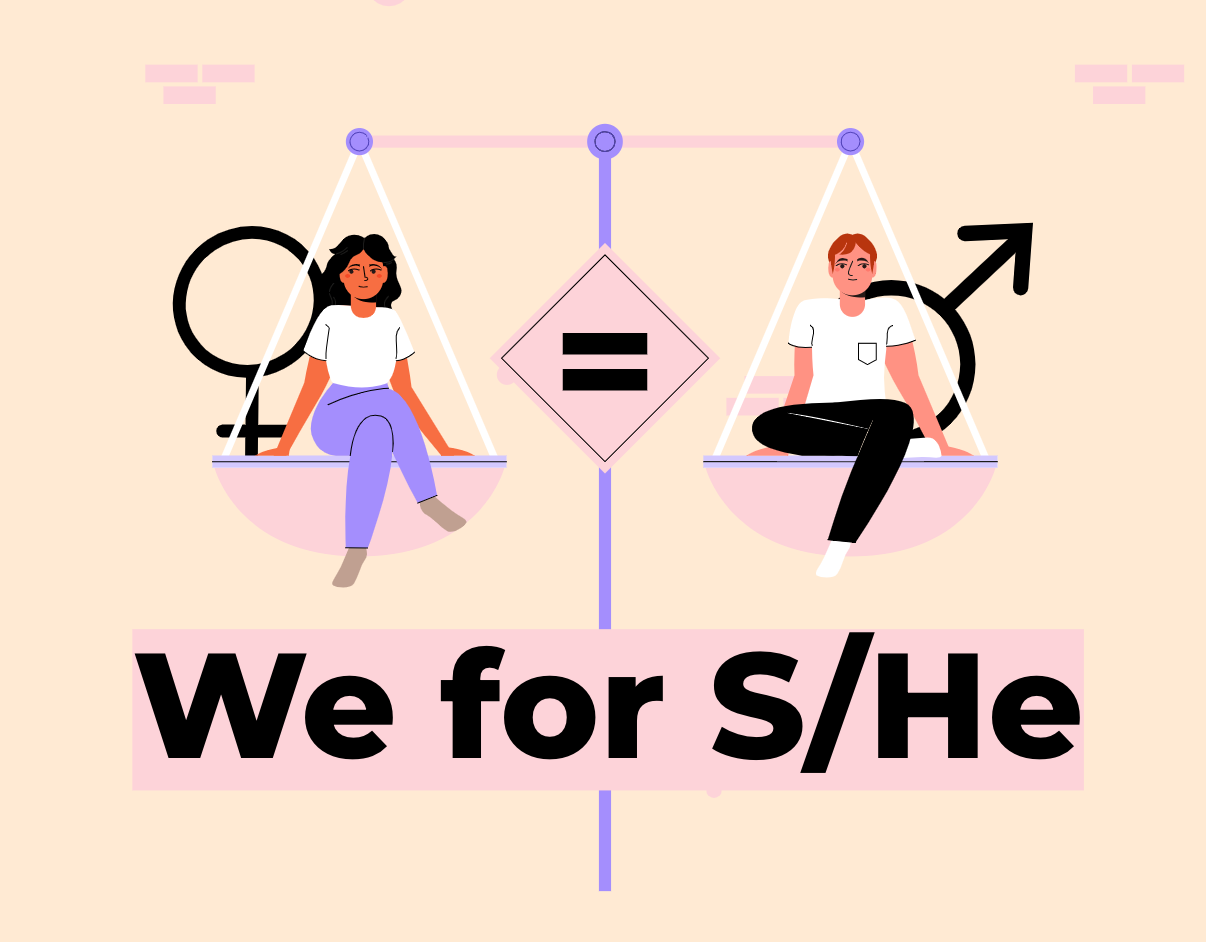By Sabine Ebanks, year 12
In the weeks following the invasion of Ukraine by Russia on February 24th, Ecolint’s response to the crisis has come under harsh scrutiny from students, parents, and teachers at the school. The initial response from the school administration was to reiterate the importance of peace and emphasize the negative impacts of conflict on all parties involved, summarized in a communiqué from Dr. Hawley on the 25th of February.
This stance from the school prompted the publication of an article in La Chat’s student newspaper, The Update, on the 9th of March, arguing that the administration’s reaction has been “lacklustre, half-hearted, and inadequate at best.” The article has spread throughout the broader school community, with comments from alumni, parents, and students from multiple campuses.
Last week, the Express published an article, linked here, on the administration’s response to the crisis and the subsequent decision to condemn the invasion of Ukraine. It included a statement from Dr. Hughes addressing the piece in The Update, in which he criticized the anonymity of the student who wrote the article, and defended the school’s decision to not take a position on the crisis in Ukraine.
In light of this controversy, the Express spoke to a variety of members of the LGB community to get their perspectives on whether the school’s response was justified.
First, many students and teachers highlighted the delicate nature of LGB’s position as an international school, and suggested that this meant the school was unable to take a firmer position on the conflict; one teacher said “I think it’s very difficult in an international environment to respond while trying to protect students. However, the school’s follow-up response was stronger”. Daphne Conway, year 12, expressed a similar view, saying “I don’t really understand what [the student from La Chat] wanted Ecolint to do more. I don’t get why Ecolint’s getting so much hate. I know that other schools in Geneva haven’t done anything at all. What was the school that represents peace supposed to do? It would just cause so much drama if they said anything more.” Antoine Liang, year 12, felt that the La Chat piece was overly critical of the administration. “What were they expecting from the school? They just mentioned the bad things the school did. But the school actively said they stand for peace. There are legitimate diplomatic issues with saying certain things; this school is for peace and is against war.”
Discussions on the issue have also focused on the complexity of the conflict in Ukraine itself. One student said that much of the anger directed at Ecolint’s response came from a lack of understanding: “I don’t think people know the full story. They just hear about what is given to them as news but they don’t read more about it.” Antoine Liang, year 12, added that the Russian people were not, in fact, responsible for the conflict; he stated “I think that the idea of condemning Russia is so simple-minded. [The conflict] has to do with the government.” Another anonymous student said there was “no reason for Ecolint to take a position in the war, especially when we are an international community. Blaming an entire nation because of one lone lunatic is unconstructive and only widens the divide and hatred between people.”
Some have also highlighted the fact that they believe the school has not typically taken positions on similar issues in the past. As one year 12 student put it, “On a lot of things, like Syria, the school never took a position. But it’s now, it’s Europe, and we’re not saying Ukraine doesn’t deserve attention, but we never gave attention [to conflicts] before. I think the year 13 was too opinionated, I don’t think the school should have taken a stance like the student suggested.” Another student agreed with the perspective that taking a more firm position would have been out of line for a school, saying “Ecolint telling me what to think defeats the purpose of teaching critical thinking, and gives me the illusion that I’m being manipulated.”
On the contrary, other students and teachers were frustrated with the school’s response, which they perceived as weak. At a school like LGB, which frequently emphasizes the importance of peace, some felt that the school had failed to stand behind its values. Emma Merluzzi, year 12, said that “This school praises its support of peace and it is something that is put forth everywhere. When a conflict like this happens and a lot of students are upset, it is immediately significant. Peace is the one thing that they praise, and the second that the school doesn’t defend it, a response is justified immediately. I think [the La Chat article] is justified.”
Furthermore, many likened the issue to a moral, not political, one. An anonymous teacher said that “There are not two sides to this issue. Putin has invaded another country without provocation. As a school whose central tenet is “education for peace”, we cannot stay neutral on this issue. Political neutrality is not the same as moral neutrality, and we have a duty to emphatically and actively stand against the atrocities that are being committed in Ukraine. It is wrong for the school to equivocate and use euphemistic language to describe the invasion of Ukraine. We should have the courage to denounce Putin’s actions; otherwise, how can the school expect its students, when it’s their turn to take the lead, to have the strength and courage to fight tyranny and injustice?” The school’s choice to use such “euphemistic language”, such as referring to the invasion as “conflict” and not a war, sparked wider criticism; one student, who was overall critical of the La Chat article, did make one point in support of it: “I don’t think the school should have used the word conflict. I think the word ‘war’ is better” to describe the current situation.
The issue of the anonymity of the La Chat student who wrote the controversial article was also a major topic of discussion at LGB. Mrs. Murray, head of the English department, said that “In terms of putting your name behind things, I completely agree with Dr. Hughes. If you feel strongly enough that you want your views published, maybe you should also be brave enough to put your name to it.” However, many students disagreed with this viewpoint. One anonymous student said that, with regards to whether students could openly voice their convictions at LGB, “Not at this school. There’s no way I would feel comfortable saying this out loud to the faculty.” Another said that “Being anonymous doesn’t mean we’re not being responsible, it means we don’t want conflict to be targeted at us. I felt like [Dr. Hughes’ response] was attacking the student.”
Overall, the issue has sparked controversy, but also provoked extensive debate about the school’s moral responsibilities and political viewpoints. Sophia Gabriele, year 12, said that “I’m glad the article is finally being discussed and I think it would be interesting if mentors would encourage their students to read it as well.” As the discussion continues, it will remain to be seen how, if at all, the administration’s response will evolve.



